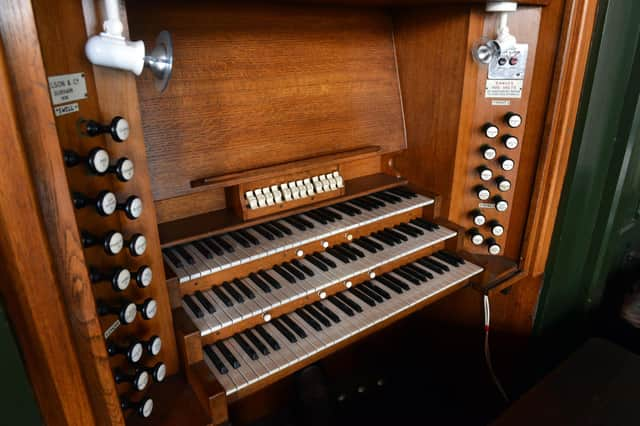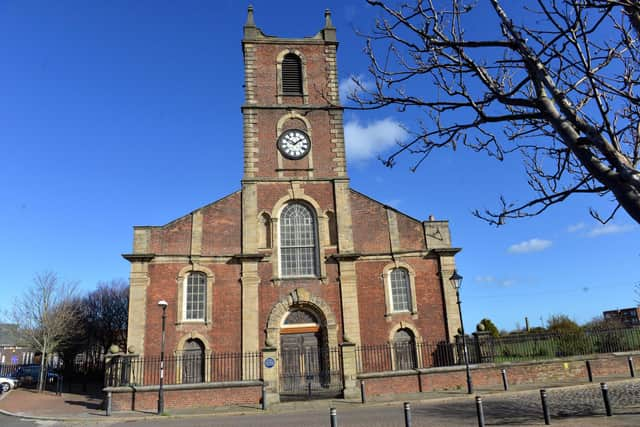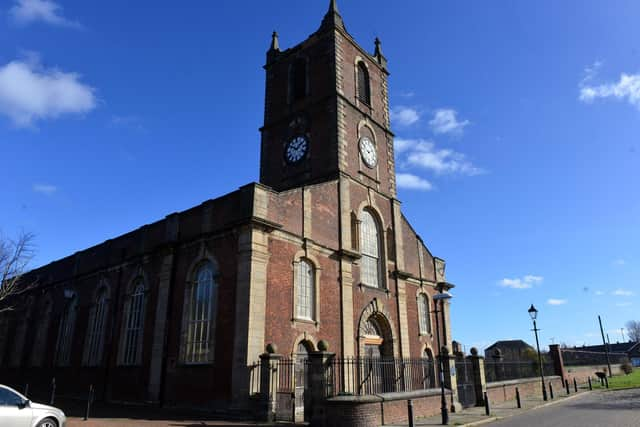Last note for historic Sunderland organ campaign as controversial removal plans approved


This week, Sunderland City Council approved a bid from the Churches Conservation Trust (CCT) to remove the instrument from the Grade I-listed Holy Trinity Church in the Hendon ward.
The move aims to free up space as part of a Heritage Lottery Fund scheme to convert the church into a cultural and community venue.
Advertisement
Hide AdAdvertisement
Hide AdFollowing the ruling from council planners, the organ is one step closer to finding a new home overseas.


This forms part of plans from CCT bosses to relocate and reinstall the organ in a German church through specialist agent Instrumente Ladach.
At the time, around 650 objections were lodged with the planning bid subsequently withdrawn ahead of a council planning meeting.
Advertisement
Hide AdAdvertisement
Hide AdAccording to planning documents, the CCT then agreed to carry out a consultation with the community in March 2019 as to why the church project could not ‘financially accommodate’ both repair works at Holy Trinity and reinstalling or repairing the organ.


The organ was later removed on a temporary basis to allow church repairs to go ahead as part of the regeneration project.
In July 2020, Sunderland City Council validated a fresh bid from the CCT for listed building consent to permanently remove the organ. It was approved, after a consultation, on Monday, August 24.
Advertisement
Hide AdAdvertisement
Hide AdHistoric England said the organ makes “some contribution” to the significance of the church as a listed building but did not object to its removal.
A statement provided to planners said: “The permanent removal of the organ requires a balanced decision between its value as part of the history of Holy Trinity against the value of freeing up the space it occupied, influenced by the likelihood of it ever being repaired.
“It is part of the building’s history but it is not of such importance that its retention should be sought at all costs, especially when there are more pressing repair priorities.
“This together with the freer use of the north aisle and the difficulty found in funding its repair means the decision falls in favour of its permanent removal.”
City planners said the removal of the organ and repairs would also “benefit the character of the interior of the church” and help to secure its future.
A decision report reads: “Significantly it will create more flexible and usable space for the regeneration project, which by creating a new community and cultural venue will reap substantial public benefit.
“Furthermore, the project will lead to the removal of Holy Trinity from the heritage at risk register, whilst also making a key contribution to the wider regeneration aims of Sunderland’s Heritage Action Zone.”
Advertisement
Hide AdAdvertisement
Hide AdPlanners went on to say: “It is clear that reinstating the organ is cost prohibitive and the funding available needs to be prioritised to the repair, restoration and improvement works to deliver the major regeneration project that will transform the church and open it up to much needed new audiences.
“It is also clear that all efforts have been explored to retain the organ, including holding a public meeting to discuss options and agreeing a subsequent [fundraising] exercise by the local community that unfortunately has not been successful.”
In 2017, the organ lost ‘historic organs list’ status following a review by the British Institute of Organ Studies.
According to information provided by Historic England, the organ was erected in 1936 using a mix of “stock and second-hand parts.”
Prior to being dismantled, the CCT recorded every note which can be replicated by a sound engineer to be played electronically through a keyboard.
A heritage statement from church bosses adds this will form part of learning and engagement work and ensures “future generations have access to the sounds of the organ.”